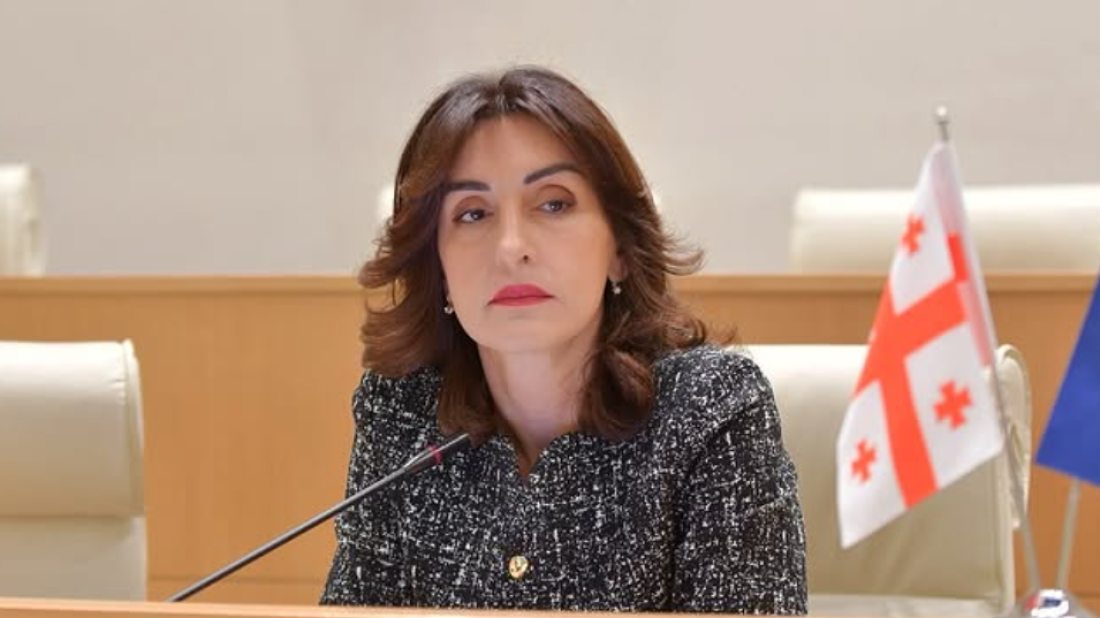Eight killed after Chinese tour bus plunges into frozen Lake Baikal
Divers have recovered the bodies of seven Chinese tourists and a Russian driver after their minibus broke through the ice of Lake Baikal in Russia, au...

Georgia’s Foreign Minister, Maka Bochorishvili sought to reassure the public that there is “no danger” to Georgia’s status as the European Union’s revised visa rules include Georgia.
The European Parliament voted on new rules allowing the European Union to more swiftly suspend visa-free travel arrangements with non-EU countries, citing concerns over security, human rights, and policy compliance.
The reform applies to 61 countries whose citizens currently enjoy short-term visa-free access to the Schengen area, including Georgia.
Bochorishvili told reporters. “I can reassure you that you will not be suspended because of the Georgian Dream’s policy. We received visa-free travel thanks to the Georgian Dream’s policy, and we continue to meet all obligations tied to it.”
The minister also rejected the notion that Georgia’s relations with the EU were at risk, calling the current debate an “instrumentalization” of the topic for political purposes.
“There is nothing to save from visa-free travel if there is a fair attitude toward Georgia,” she added. “Our country has consistently fulfilled all its commitments under the Association Agreement.”
Bochorishvili’s comments come amid broader discussions in Brussels over migration management and democratic standards.
The European Parliament’s reform aims to strengthen the bloc’s ability to respond quickly to changing global conditions, but Georgian officials insist that Tbilisi’s cooperation with the EU remains strong and fully aligned with European requirements.
According to the European Parliament’s statement, the revised mechanism gives the European Commission broader powers to temporarily, and potentially permanently, reintroduce visa requirements if a partner country poses heightened security risks or sees a surge in irregular arrivals.
The new framework also adds several grounds for triggering a suspension including hybrid threats such as the instrumentalization of migration, investor citizenship schemes (so-called “golden passports”), inconsistency with EU visa policy, serious human rights or humanitarian law violations, and failure to comply with International Court of Justice rulings.
Quentin Griffiths, co-founder of online fashion retailer ASOS, has died in Pattaya, Thailand, after falling from the 17th floor of a condominium on 9 February, Thai police confirmed.
At least four people have died and 17 others were injured after a liquid gas truck overturned and exploded in Santiago, Chile’s capital, authorities confirmed on Thursday. Police said the driver was among those killed.
Cubans are increasingly turning to solar power to keep businesses operating and basic household appliances running during prolonged electricity cuts, as fuel shortages make diesel generators and other temporary solutions more difficult and costly to maintain.
Ukraine’s National Paralympic Committee has announced it will boycott the opening ceremony of the Milano Cortina 2026 Paralympics in Verona on 6 March, citing the International Paralympic Committee’s decision to allow some Russian and Belarusian athletes to compete under their national flags.
Eric Dane, the actor best known for his roles in 'Grey’s Anatomy' and 'Euphoria', died on Thursday, at the age of 53 after a battle with amyotrophic lateral sclerosis (ALS). His family confirmed his death after what they described as a “courageous battle” with ALS.
Iran announced on Saturday that it has designated the naval and air forces of European Union member states as “terrorist entities” in a reciprocal move after the EU blacklisted the Islamic Revolutionary Guard Corps (IRGC).
At least 10 people were killed and 50 wounded in Israeli strikes in Lebanon's Bekaa Valley on Friday (20 February), two security sources told Reuters, after the Israeli military said it had targeted Hezbollah sites in the Baalbek area.
Iran’s Foreign Minister Abbas Araghchi on Saturday (21 February) dismissed U.S. claims that 32,000 civilians were killed during protests in Iran. He said Tehran has already released official figures and called for evidence to support any higher estimates.
Uzbekistan's president Shavkat Mirziyoyev has held a series of high-level meetings in the U.S. aimed at strengthening bilateral economic and strategic ties between the two countries.
Türkiye has signalled readiness to contribute to a proposed Gaza stabilisation force during the inaugural Board of Peace meeting on Thursday (19 February), but according to former Turkish diplomat Mehmet Öğütçü, the decisive factor will be whether Israel and the United States agree on Ankara’s role.
You can download the AnewZ application from Play Store and the App Store.

What is your opinion on this topic?
Leave the first comment